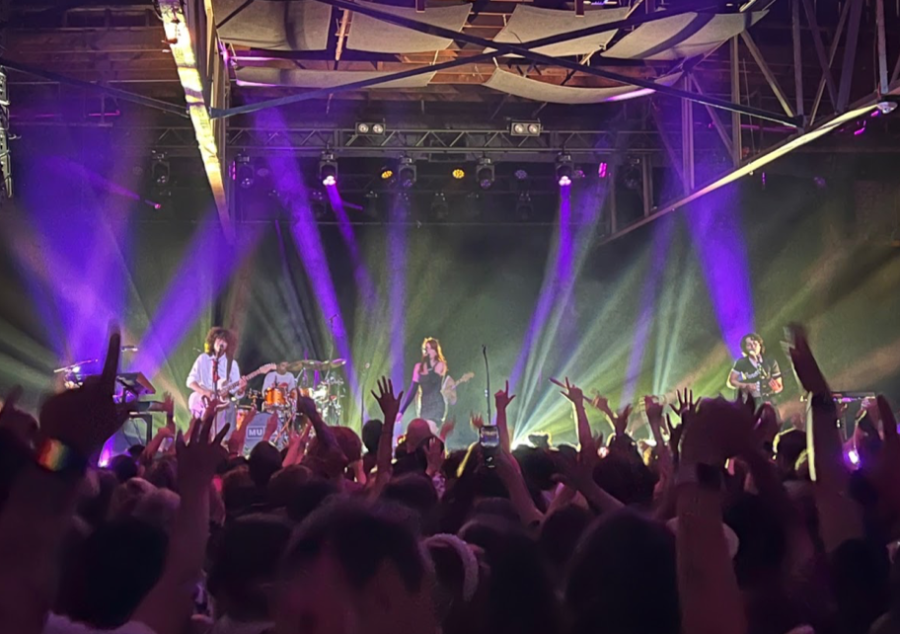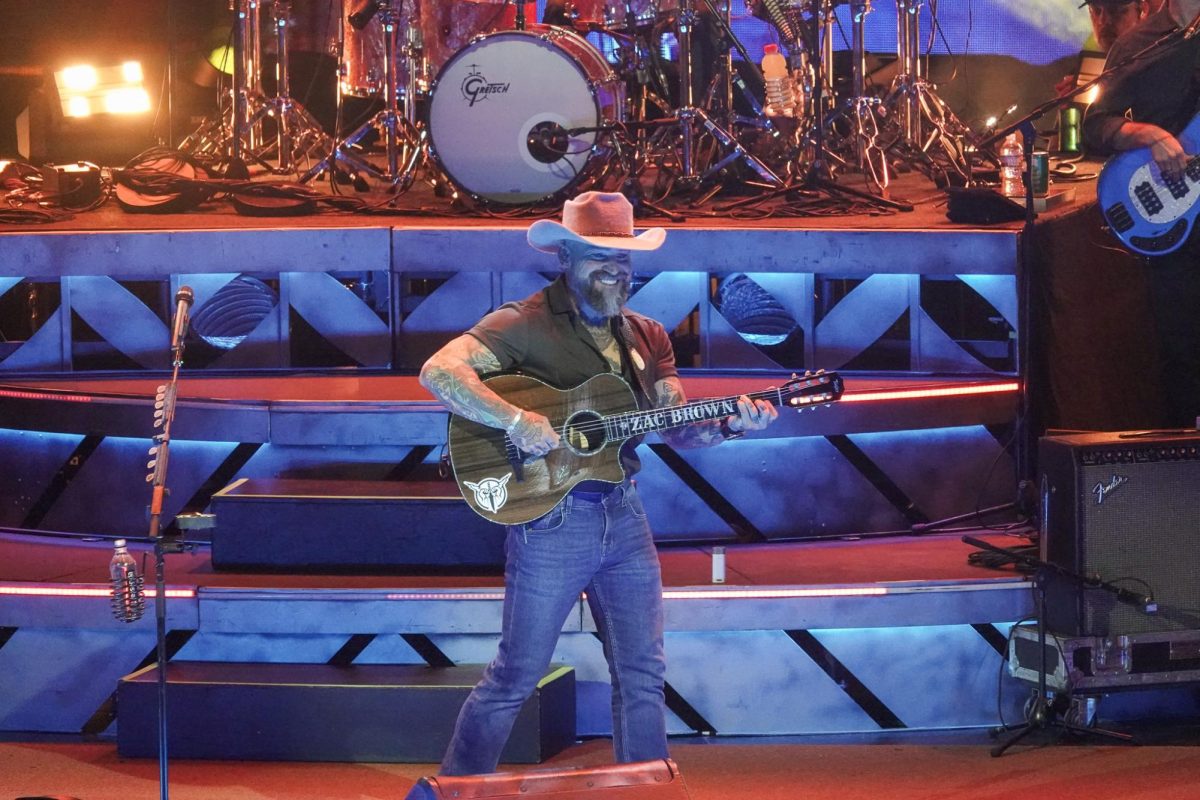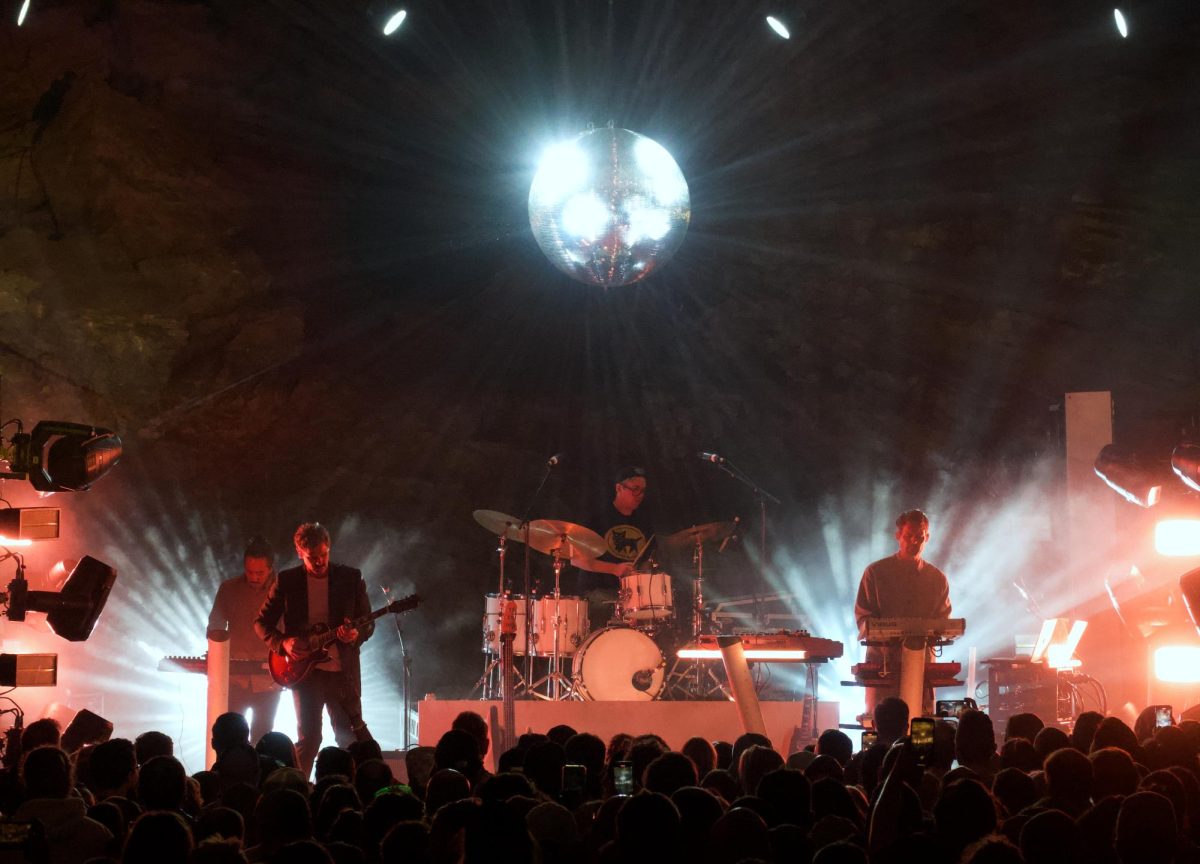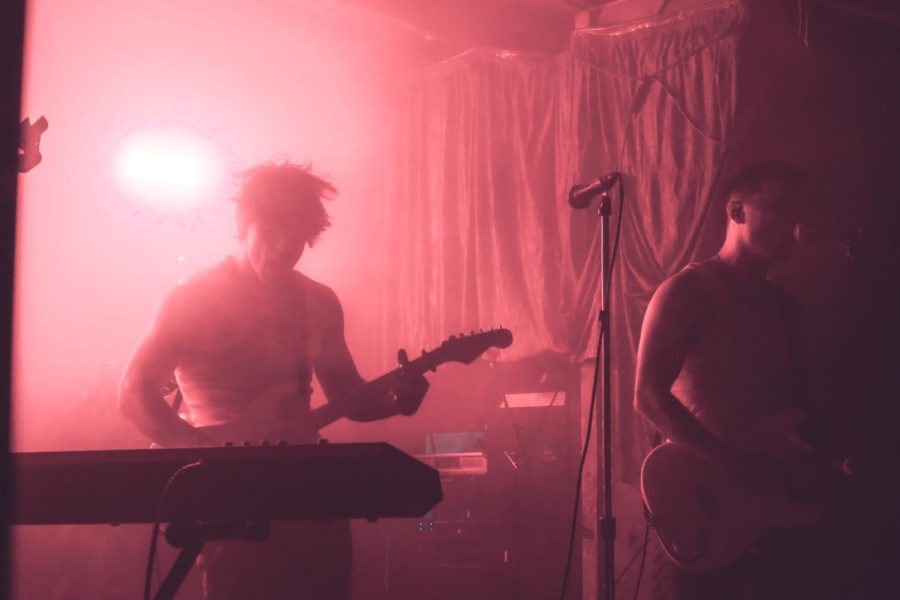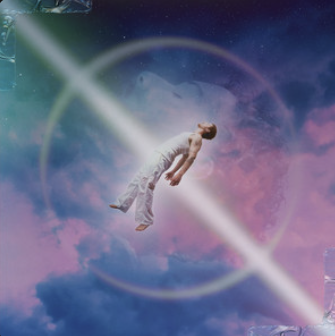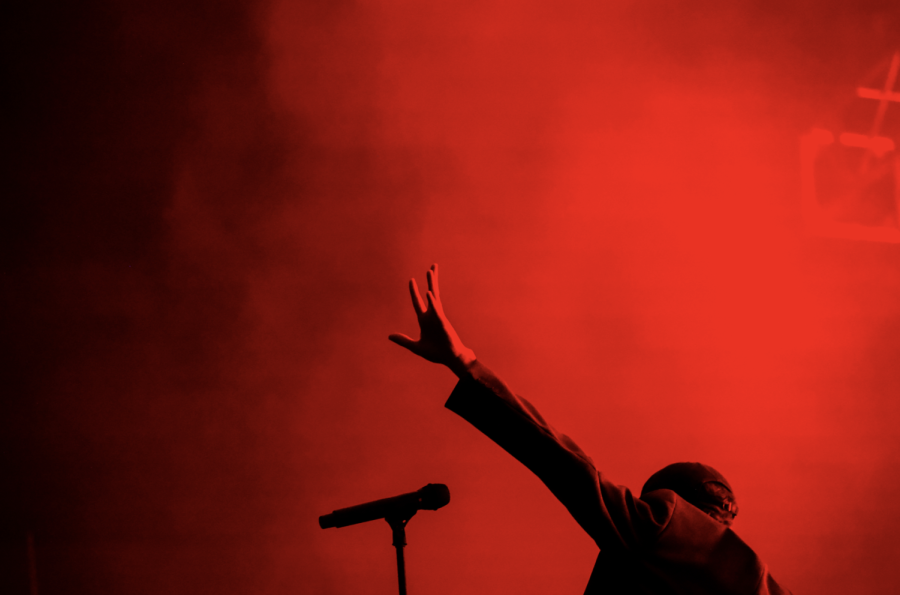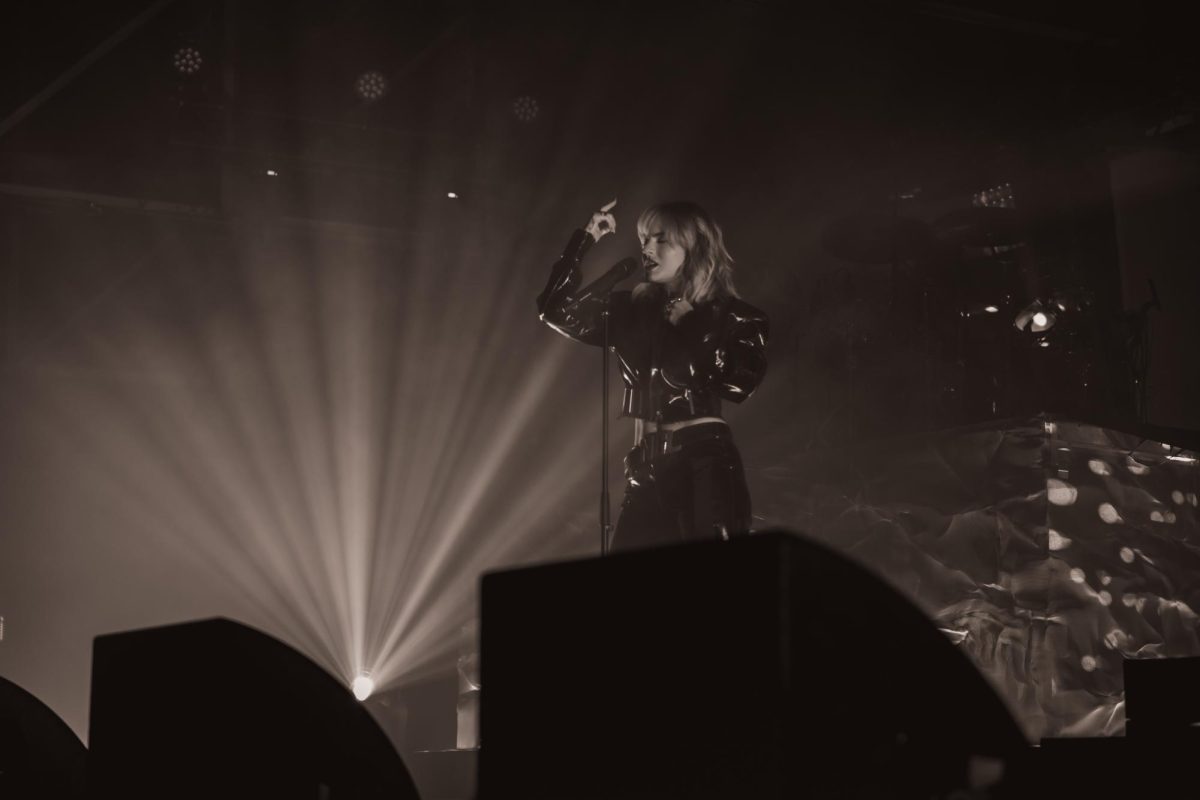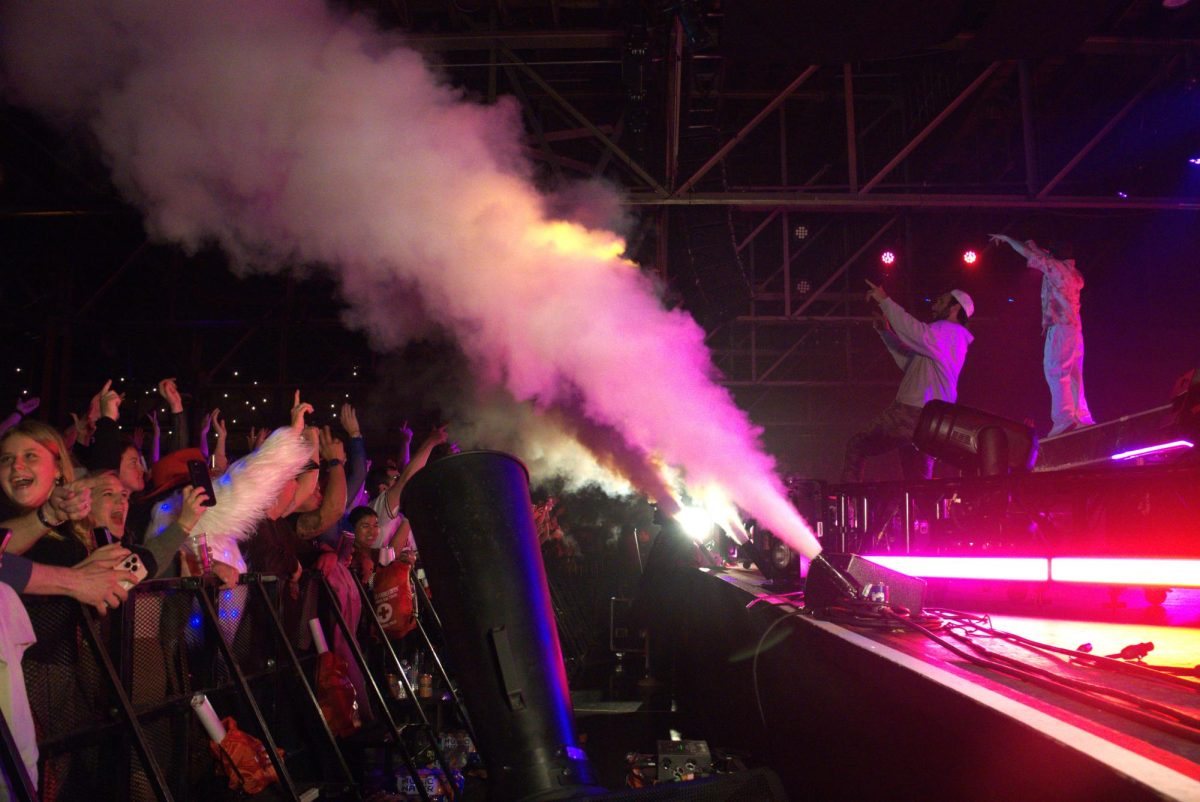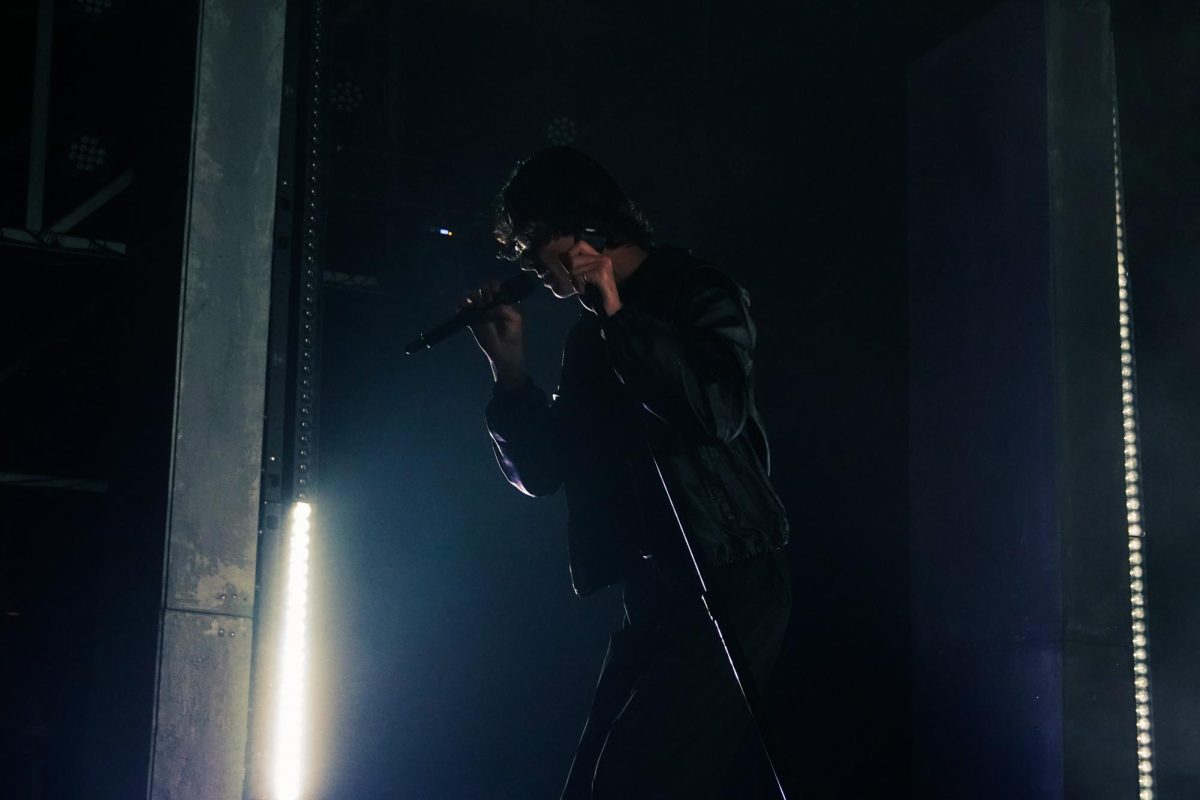Editor’s note: This piece contains mention of suicidal thoughts.
I know this is horrid to acknowledge from a self-proclaimed “music lover,” but I’ll be the first one to admit it: I hadn’t heard of Muna until their 2022 cult hit “Silk Chiffon.” This fact troubles me deeply, as their music fits precisely into the genres I love: indie rock driven by synths, cathartic lyrics and the occasional twang of pedal steel. Luckily, my Spotify Discover Weekly blessed me with the aforementioned banger, and this past Friday, Sept. 23, I had the honor of attending their show at Marathon Music Works.
Muna is an electronic pop trio which began in 2013. The three members met each other at the University of Southern California and have released three albums to date. The band has had steady traction, touring with multiple big names such as Harry Styles and Kacey Musgraves.
As I entered the venue, I was engulfed by the sights of Doc Martens, tote bags, LGBTQ+ ribbons and accepting fans. Muna is, at its forefront, a queer band. All three band members are queer, with multi-instrumentalist Naomi McPherson identifying as nonbinary. The two other members, Katie Gavin and Josette Maskin, identify themselves as a part of the LGBTQ+ community. The idea of “queer joy” is often mentioned with Muna, and the crowd most definitely reflected this sentiment. One of my favorite parts of the night was the show’s mood. Everyone was having a fantastic time, dancing and yelling back lyrics at the trio. Playing to their audience–literally and metaphorically–lead singer Katie Gavin stopped the show to take a fan’s BeReal, mentioning that this situation happens at nearly every show.
From the second Muna stepped on stage, I knew they would bring their A-game. Each of the three artists had impeccable outfits: from Gavin’s black dress and fishnet stockings to Maskin’s vintage Panthers tee. But to me, the best dressed of the night was McPherson, who rocked knee-length, pleated herringbone shorts with a blazer and red tie.
Beginning with a lengthy bass-heavy instrumental, the band took their positions and launched into “What I Want.” The song describes a scene in which the woman “takes a shot / cause thats just what I want,” and then decides to take drugs and dance in a queer bar as an extension of what she wants. These lyrics remind me of a passage from feminist writer Maggie Nelson’s collection of essays entitled “On Freedom,” in which Nelson describes the euphoria associated with inebriated desire. Nelson says, “we drink in part because it can be delightful and exciting as much as scary and awful to ‘let things happen’” She then describes “the euphoria and relief in tossing my drunken, twenty-something body upon the whims of late night New York City, stumbling home regularly at 3:00 a.m.” These words resonate with the idea of wanting to want and not caring what other people think, pertinent to the song.
The band quickly sped into “Number One Fan,” a song which explores body image in the digital age. The song opens with a hard-hitting lyric, “So I heard the bad news / Nobody likes me, and I’m gonna die alone.” As the track goes on, the song’s protagonist realizes working on themselves to gain self-confidence is necessary, thus becoming their own “Number One Fan” in the process. These two songs—“What I Want” and “Number One Fan”—represent the essence of Muna’s songwriting: capturing our generation’s tangle with sexuality, the internet and the interconnectivity between the two.
About halfway through the show, Muna played two songs I have come to adore in the short time since the show. The first song, “Loose Garment,” was described by Gavin as “about having a more tender relationship with pain…Not leaning into it but accepting it.” The song felt ethereal, with lush vocals about letting pain flow. The track compares the previous pain of breakups to a choker, but now it feels like a loose garment. The protagonist is no longer weighed down by their lover. The second, a darker song called “If U Love Me Now,” talks about challenging subjects like depression and suicidal ideation. One especially deep verse was, “It’s just a hypothesis I test / That I should not exist / Don’t you love me now?” As mentioned by the band, these two songs represent the band’s relationship with pain and suffering. The songs reflect a shift from optimism reflected on “Loose Garment” to despair on “If U Love Me Now”. Over the course of the two tracks, we see the protagonist reflecting back on healing and releasing their pain.
In between songs, Gavin mentioned that the band was in Nashville just a few months ago, playing to a much smaller crowd at the Basement East. The earlier show in February had around 500 in attendance, while the Friday show was a sold-out crowd of 1,500. Muna’s fanbase always seems to be growing, and it was great to see a mix of newer fans like me along with devoted supporters that knew every line.
The band then launched into a classic cover of “Mr. Brightside” by The Killers. The song always gets the crowd moving, and Friday night’s show was no exception. The cover seemed to be the most hyped, outside of the notable song “Silk Chiffon.” On the latter, lead singer of the opening band Meet Me At The Altar, replacing Phoebe Bridgers’s verse was Edith Victoria.
Muna’s energetic performance, full of incredible synth lines and catchy lyrics, left me humming melodies all the way home. Their show turned me into a lifelong fan, and I can’t wait until I see them perform again, hopefully at an even larger venue.

